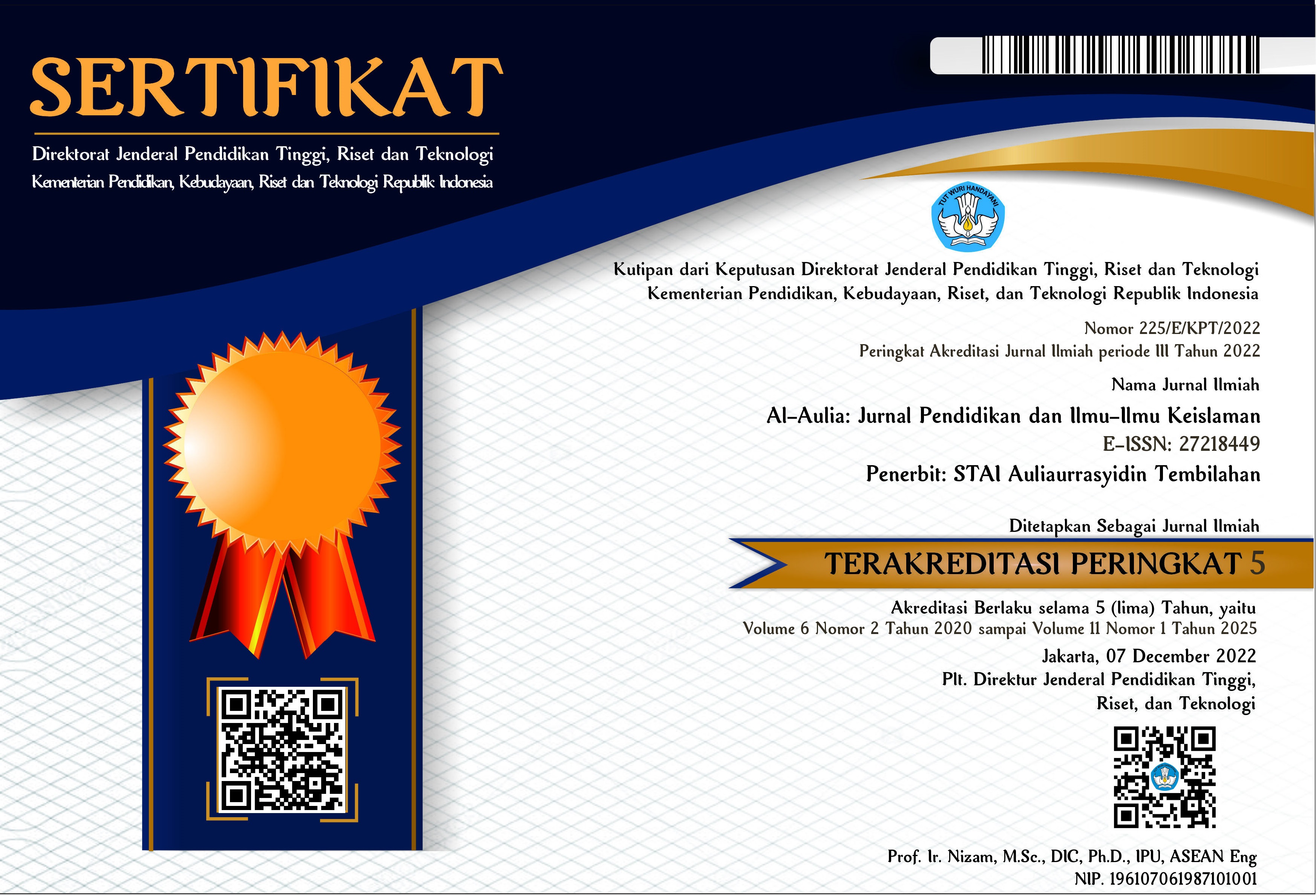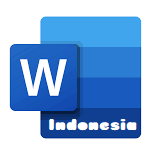Penerapan Prinsip-Prinsip Manajemen Pendidikan Islam: Studi Kasus Madrasah Ibtidaiyah Swasta Al-Ikhwan Bukittinggi, Sumatera Barat
DOI:
https://doi.org/10.46963/aulia.v10i1.1505Keywords:
Implementation, Management, Islamic EducationAbstract
The management of madrasah educational institutions is currently changing significantly due to the paradigm it applies. This paradigm includes the application of the concept of buttom-up management. It focuses on improving quality through autonomy, accountability, accreditation and evaluation. The new paradigm encourages many to start a system based on values, transparency and public accountability. As an Islamic educational institution, Madrasahs retain their characteristics of adapting to change that distinguish them from other institutions. Its main source of teachings is Islam (Al-qur'an and Hadith) which inspires it. This research investigates the application of Islamic education management principles at MIS Al-Ikhwan Bukittinggi. This research uses a qualitative approach and descriptive-analytical method. This research aims to find out how well the madrasah applies the principles of Islamic education management, including the principles of shura, ikhlas, sidiq, amanah, and taqwa. Based on the information gathered through interviews and observations, the researcher found that the institution has implemented these principles. In addition, the vision and mission of the madrasah are in accordance with the principles of Islamic education management.
References
Abdullah, M. L., & Syahri, A. (2018). Model of Religious Culture Education and Humanity. Nadwa Jurnal Pendidikan Islam, 12(2).
Adz-Dzahabi, I. (2020). Al Kabair: Galaksi Dosa. Darul Falah.
Alhammi, M. (1993). The fact of consultation in Islam. Medina, Archaeological Library.
Alkrdem, M., & Alqahtani, A. (2016). Educational management in the light of Islamic standards. British Journal of Education, Society & Behavioural Science, 14(3).
Kartiko, A. (n.d.). Azzukhrufi, jaya R.(2019). Pengaruh Budaya Organisasi Dan Kompensasi Terhadap Kinerja Pendidik Di Madrasah Aliyah Nahdlatul Ulama Mazro’atul Ulum Paciran. Nidhomul Haq: Jurnal Manajemen Pendidikan Islam, 4 (2).
Kementerian Agama, R. I. (2010). al-Qur’an dan Tafsirnya. Jakarta: Lentera Abadi.
Ma’arif, M. A. (2017). Analisis Konsep Kompetensi Kepribadian Guru PAI Menurut Az-Zarnuji. Istawa: Jurnal Pendidikan Islam, 2(2).
Maarif, M. A., & Rofiq, M. H. (2018). Pola pengembangan kurikulum pendidikan pesantren berkarakter: Studi pondok pesantren nurul ummah mojokerto. TADRIS: Jurnal Pendidikan Islam, 13(1).
Muhammad, A.-G. (1991). Kayfa Nata ‘amal ma ‘a al-Qur’an. The International Institute of Islamic Thought.
Mukani, M. (2015). Mengantisipasi Kegagalan Islamisasi Sains Dalam Lembaga Pendidikan Islam. Madinah: Jurnal Studi Islam, 2(1)
Ridwan, M. (2018). Konsep tarbiyah, ta’lim dan ta’dib dalam al-Qur’an. Nazhruna: Jurnal Pendidikan Islam, 1(1).
Rosyad, A. M., & Maarif, M. A. (2020). Paradigma Pendidikan Demokrasi Dan Pendidikan Islam Dalam Menghadapi Tantangan Globalisasi Di Indonesia. Nazhruna: Jurnal Pendidikan Islam, 3(1).
Sugiyono, D. (2010). Memahami penelitian kualitatif.
Surya, P. (2011). Educational management, handbook for school of education student. Yogyakarta State University.
Downloads
Published
Issue
Section
License
Copyright (c) 2024 M. Yusuf, Iswantir Iswantir

This work is licensed under a Creative Commons Attribution-ShareAlike 4.0 International License.
Authors who publish with this journal agree to the following terms:
1. Copyright on any article is retained by the author(s).
2. The author grants the journal, right of first publication with the work simultaneously licensed under a Creative Commons Attribution License that allows others to share the work with an acknowledgment of the work’s authorship and initial publication in this journal.
3. Authors are able to enter into separate, additional contractual arrangements for the non-exclusive distribution of the journal’s published version of the work (e.g., post it to an institutional repository or publish it in a book), with an acknowledgment of its initial publication in this journal.
4. Authors are permitted and encouraged to post their work online (e.g., in institutional repositories or on their website) prior to and during the submission process, as it can lead to productive exchanges, as well as earlier and greater citation of published work.
5. The article and any associated published material is distributed under the Creative Commons Attribution-ShareAlike 4.0 International License







